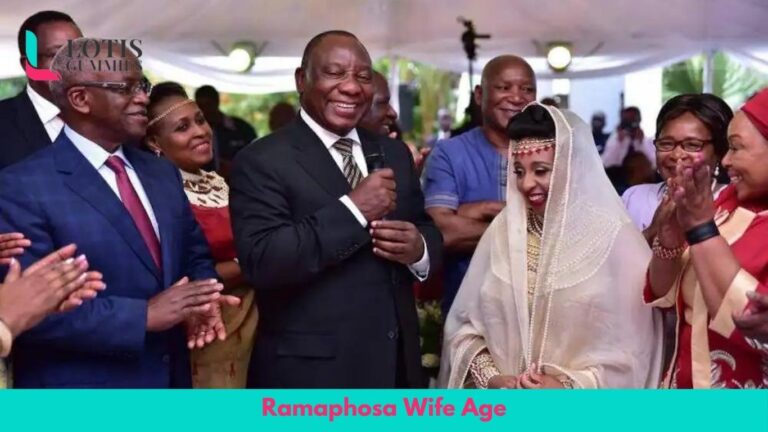As South Africa nears its pivotal May 29 election, President Cyril Ramaphosa faces mounting challenges that could determine the future of both his leadership and the African National Congress (ANC). Despite his promises to rejuvenate the ANC and address its tarnished image, the country’s pressing socio-economic issues cast a long shadow over his presidency. South Africa’s economy has struggled with slow growth, high unemployment rates, and persistent power shortages, creating a climate of discontent that could heavily influence the upcoming elections.
What Are the Key Issues Affecting Ramaphosa’s Presidency?
Cyril Ramaphosa’s tenure as president has been marked by economic stagnation and escalating public dissatisfaction. Approximately one-third of South Africa’s population is unemployed, and the nation’s power crisis continues to exacerbate the economic woes. These issues are central to voter dissatisfaction and pose significant risks to the ANC’s performance in the election. Recent polls suggest that the ANC could lose its majority for the first time in over three decades, a potential blow not only to the party but also to Ramaphosa’s political future. Analysts speculate that a poor showing in the polls could undermine Ramaphosa’s chances of securing another term.
How Has Ramaphosa’s Leadership Style Impacted His Presidency?
Before ascending to the presidency, Ramaphosa was a key figure in South Africa’s transition from apartheid, known for his negotiation skills and ability to engage with leaders like former President F.W. de Klerk. His reputation for strategic dialogue and assertive unionist activities in the 1980s earned him widespread respect. However, his presidency has been criticized for a perceived lack of decisive action on necessary reforms. This cautious approach is often seen as an attempt to maintain unity within the fragmented ANC, contrasting sharply with his more assertive past.
What Role Does Ramaphosa’s Personal Life Play in His Political Career?
Cyril Ramaphosa is married to Tshepo Motsepe, a respected medical doctor and businesswoman, who is 69 years old. Her support has been instrumental in Ramaphosa’s political career, providing a stable family backdrop amidst the turbulent political landscape. The couple’s ability to maintain a strong family bond despite the pressures of political life has been noted as a testament to their resilience and mutual support.
Can Ramaphosa Manage Internal Divisions Within the ANC?
The upcoming election represents a significant test of Ramaphosa’s leadership, particularly his ability to manage internal divisions within the ANC and present a united front. The challenges are multifaceted, ranging from reviving economic growth and reducing unemployment to resolving the ongoing energy crisis. Ramaphosa’s leadership style, characterized by careful balancing, must adapt to address these critical issues effectively. This election will not only evaluate his leadership but also the ANC’s relevance and adaptability in South Africa’s evolving political landscape.
What Are the High Stakes for Ramaphosa and the ANC in This Election?
With the election fast approaching, the stakes are exceptionally high for Cyril Ramaphosa and the ANC. The results will shape South Africa’s political landscape for years to come. A loss of majority support for the ANC could lead to significant political realignments and potentially a shift in governance. For Ramaphosa, this election is a chance to solidify his legacy or face the political fallout from the party’s shortcomings. The upcoming vote is about more than determining who will govern; it is about redefining governance to meet the country’s substantial challenges.
Will South Africa’s Economic Crisis Define the Election Outcome?
South Africa’s economy remains a critical issue that could define the outcome of the election. Slow economic growth, coupled with high unemployment rates, has created widespread discontent. The country’s persistent power shortages further exacerbate these issues, leading to daily blackouts that disrupt lives and businesses. Ramaphosa’s ability to present viable solutions to these economic challenges will be crucial in swaying voters. His administration has been criticized for its slow progress in addressing these problems, which has fueled public frustration.
Can Ramaphosa Address the Power Crisis?
The ongoing power crisis is one of the most pressing issues facing Ramaphosa’s administration. The state-owned power utility, Eskom, has struggled with operational inefficiencies, corruption, and financial mismanagement, leading to frequent power outages. These outages have a severe impact on the economy, hindering business operations and reducing productivity. Ramaphosa’s government has initiated several measures to reform Eskom and stabilize the power supply, but progress has been slow. The effectiveness of these measures in the coming months will be a key factor in the election.
How Will the Election Shape Ramaphosa’s Legacy?
The upcoming election is a critical juncture for Ramaphosa’s political career. His leadership will be scrutinized based on his ability to address South Africa’s economic and social challenges. A strong performance by the ANC could reinforce his position and give him the mandate to pursue necessary reforms. Conversely, a poor showing could weaken his leadership and limit his ability to implement changes. The election results will not only impact Ramaphosa’s legacy but also the future direction of the ANC and South Africa as a whole.
What Does the Future Hold for the ANC?
The ANC has dominated South African politics since the end of apartheid, but its grip on power is being challenged by growing public dissatisfaction and internal divisions. The party’s ability to adapt to changing political dynamics and address the country’s pressing issues will be crucial in maintaining its relevance. The election will serve as a referendum on the ANC’s performance and its ability to lead South Africa into the future. Whether the party can overcome its current challenges and regain public trust remains to be seen.
Conclusion
The May 29 election is a defining moment for Cyril Ramaphosa and the ANC. The outcome will determine the future of Ramaphosa’s presidency and the party’s dominance in South African politics. Addressing the country’s economic challenges, managing internal divisions within the ANC, and resolving the power crisis are critical issues that will influence voter sentiment. As South Africa stands at this crossroads, the election results will shape the nation’s political landscape and set the course for its future.

